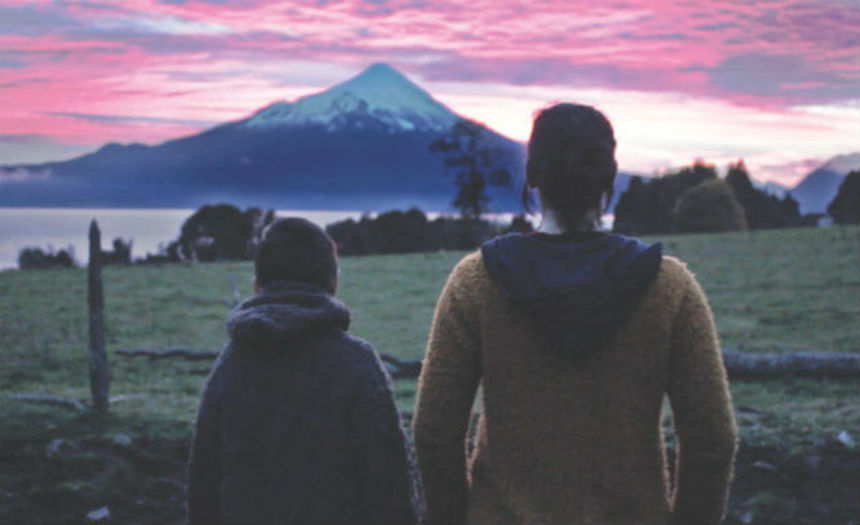Review: ROOT (RAIZ) Is Somewhat Literal In Its Symbology

The winner of the Chilean Competition in last year's Valdivia Film Festival, Raíz (Root) managed not only to get chosen to participate in many festivals from Latin America and beyond, but also snagged a Chilean distribution deal, something that doesn't happen too often with award winning films from Chile.
But thanks to new deals made between the government, the distributors, and the big cinema theaters, we now have a steady and strong feed of Chilean movies on the biggest and also the smaller cinema chains in the whole country, and thus, with those numbers, maybe Chilean filmmakers may aim for bigger and wider audiences.
Nevertheless, when one tries to scan the landscape of Chilean films from recent years, many times you'll find that there are many kind of movies, but there's a certain type of films that are getting made more and more frequently, and that is the ones where the southern scenery of Chile is the protagonist.
Thus, the cinematography, the framing and how green or blue the scenery gets, the more beautiful and astonishing everything becomes. In Root, it's not only that, as it also takes part of what one could conceive as the theme of the film, about roots and origins, and how we were all species started in nature, and how big trees must have big roots.
It becomes a landscape film, where every bit of action is edited within a bunch of nature shots that are gorgeous and for sure help to sustain and remind you of how it's a movie about looking for the origins, but in the end it becomes way too obvious.
Written and directed by Matías Rojas Valencia, the story follows Amalia, a 26 year old woman who comes back to her family house when her lifetime nanny dies, and her nine year old son is left alone without a father. Without her mother's consent, Amalia leaves her house with the family car, and with the nanny's son, to go on a road trip to find the long-lost father.
The film follows the tropes and guidelines of most road movies, but without any humor put into it, just following the stops, having strange characters appear on the way, and finally stopping for a moment to wonder about Amalia's father as well. It's a movie about what's under us, the earth in which we stand, about the place in which we grew up, and failed opportunities.
It's a movie about origins. The structure of the film allows for a deeper journey, as the trip continues and it feels as if they're getting more and more into the inside of the countryside, how it seems there's always something under and beyond the places that they just visited, that the strange only will become stranger. It's a trip to the literal roots of the issue they are presenting, and to the roots of the problem of absent parenting in Chile and Latin America.
I'd recommend this movie to those who haven't been able to watch a good Chilean film in a while, as this surely ticks most of the boxes when it comes to a good movie from this southern part of the world, it also serves as some kind of show-and-tell regarding the riches and visual landscapes you can see here. But, for anyone else, here you won't find profound themes, but shallow symbols and beautiful pictures, and that isn't enough. For me, at least.
The film is now playing in theaters in Chile.







